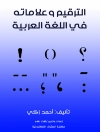The first study dedicated to the relationship between Alexander Pope and George Berkeley, this book undertakes a comparative reading of their work on the visual environment, economics and providence, challenging current ideas of the relationship between poetry and philosophy in early eighteenth-century Britain. It shows how Berkeley’s idea that the phenomenal world is the language of God, learnt through custom and experience, can help to explain some of Pope’s conservative sceptical arguments, and also his virtuoso poetic techniques.
Tabla de materias
Introduction: Pope and Berkeley PART 1: READING ABOUT LANGUAGE Locke Cratylus Port Royal and Montaigne Hobbes, Zeno, Epicurus, Bayle PART 2: THE LANGUAGE OF VISION AND THE SISTER ARTS The ‘Epistle to Mr. Jevas’ The Pseudo-Lockean Picture Theory Berkeley on Vision Visual Traditions in Pope’s Poetry PART 3: MONEY AND LANGUAGE Pope’s Nostalgia Signs of Exchange Pope’s Lost Gold Signs of Use PART 4: PROVIDENCE AS THE LANGUAGE OF GOD IN ALCIPHRON AND AN ESSAY ON MAN Analogy and Epistle I Self-love and the Providential Debate Common Sense Epilogue: Pope, Berkeley and Hume Bibliography of Materials Cited Index
Sobre el autor
TOM JONES teaches Eighteenth-century literature and literary theory in the University of St. Andrews. He has published articles on Pope’s reading in classical and modern philosophy.












